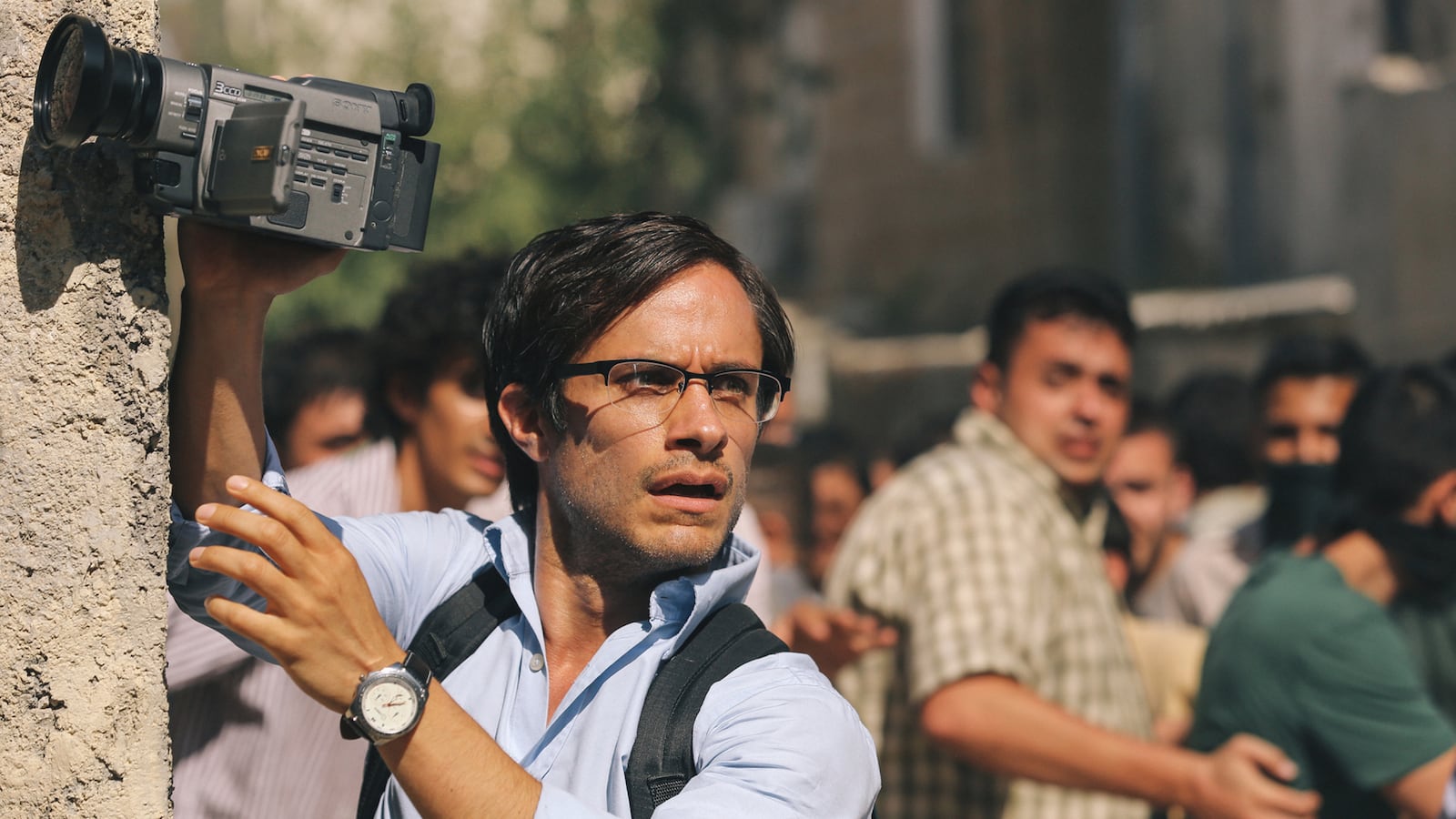The first time I met Maziar Bahari—the central figure in Rosewater, the amazing directorial debut of Jon Stewart—we were in Tehran talking to some beautiful actresses from what was then the burgeoning world of Iranian cinema.
It was 1997, one of those rare times when the ruthless reign of the ayatollahs appeared to be easing up. Iranian directors were wowing the international festivals, while out on the streets in Tehran the mandatory scarves and cover-ups were slipping back to expose more hair, more makeup, more smiles, and some of the chadors were clinging pretty tight to the women who were forced to wear them.
The American photographer working with me, who was very much taken with the beauty of Persian women, was more than a little frustrated. Finally he turned to the rather handsome Bahari, a young filmmaker himself who was making a few extra dollars acting as our translator, and asked him how one could have an idea what Iranian women looked like under all those clothes.
“Well,” said Bahari, as if he were describing the most natural situation imaginable in a nation famously dominated by puritanical and misogynistic Islamic zealots, “you invite them to your apartment and they get naked.”
Of course.
From then on, knowing Bahari was half joking—but only half joking—about the women, we also knew we’d be discovering an Iran that was much more human, much more complex, and in some respects much more treacherous than we’d ever imagined.
Eventually, although Bahari’s great love is filmmaking, he also became my colleague at Newsweek magazine covering Iran and Iranian issues, writing brilliantly about the nuances of a society he knew so well and loved so much.
From the parties in north Tehran, where liquor flows, hash fumes and chadors come off at the door to reveal miniskirts and spike heels, to an interview with a former Iranian spymaster and his cronies, in which we tried to get them to admit their role murdering dissidents in Europe, Bahari was a guide to the unexpected.
I am sure that is what Jon Stewart first found so appealing about Bahari when he had him on a segment of The Daily Show in the spring of 2009 being interviewed in Tehran by the faux-spy Jason Jones. Bahari always saw the surreal charm of Iran’s many contradictions.

And then, in the aftermath of the stolen elections that year, the contradictions suddenly turned very ugly indeed. Maziar was thrown in jail and brutalized for months by an interrogator who reeked of rosewater cologne.
Throughout that time, a team led by Newsweek’s then foreign editor, Nisid Hajari, labored tirelessly to win Bahari’s release. I worked especially closely with Bahari’s pregnant partner, Paola Gorley, in London. We made every contact, we pulled every string, so that there was nowhere the beetle-browed President Mahmoud Ahmadinejad could go anywhere in the world where he wouldn’t be confronted with demands for Bahari’s freedom.
I don’t think any of us know what worked. I tend to think it was the pressure Paola brought to bear. She was not going to see her baby born without its father, and countless people around the world shared that sentiment. Before she delivered, Bahari was delivered to her.

Today, Bahari is publishing IranWire, which partners with The Daily Beast to help develop the talents of young journalists in Iran, despite all the pressures on them, and to present to the world stories about the country that go far beyond the predictable boilerplate of confrontation.
On Monday, Rosewater will make its debut at the Toronto Film Festival, with Gael Garcia Bernal playing Bahari. A review in Variety tells us “Stewart’s confident, superbly acted debut feature works as both a stirring account of human endurance and a topical reminder of the risks faced by journalists in pursuit of the truth.” Iran’s hardliners, meanwhile, haven’t seen it, but haven’t hesitated to pan it, attacking the film as, yes, of course, another Zionist plot against them.
I only wish Bahari could go back to his beloved country. Even with the avuncular-seeming Hassan Rouhani as president of Iran, the mullahs’ regime is still too unpredictable and too vindictive for him to risk a return. And that’s really too bad for all of us. In the old days, when Bahari would go to Iran, it got naked.






